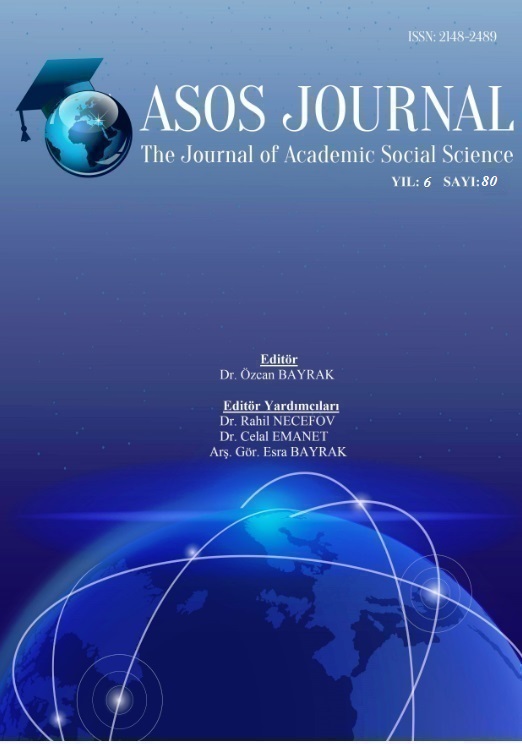Author :
Abstract
Okullar paydaşlara eğitim hizmeti sunarlar ve kendilerine özgü örgüt kültürüne sahiptirler. Okulların yarattığı olumlu organizasyon kültürü, okuldaki çalışma ortamını olumlu yönde etkilemektedir. Bu çalışma okul öncesi eğitim kurumlarındaki örgütsel kültürü, öğretmenlerin görüşleri temelinde farklı değişkenler açısından incelemeyi amaçlamaktadır. Çalışmada genel tarama yöntemi kullanılmıştır. Verilerin toplanması için Terzi (2015) tarafından geliştirilen “Okul Kültürü Ölçeği” 205 okul öncesi öğretmenine uygulanmıştır. Uygun olarak doldurulan 182 ölçek SPSS 22 paket programı kullanılarak analiz edilmiştir. Analizlerde Bağımsız Örneklemler T Testi, Tek Yönlü Varyans Analizi (ANOVA) ve Pearson Momentler Korelasyon Katsayısı hesaplanmıştır. Araştırma bulgularına göre okul öncesi eğitim kurumlarında “Görev Kültürü” başat kültür olarak tespit edilmiştir. “Bürokratik Kültür “ ise en az puan alan kültür tipi olarak bulunmuştur. Ayrıca çalışmada okullarda var olan “destek kültürü” ile “başarı kültürü” arasında pozitif yönde anlamlı ve yüksek düzeyde bir ilişki olduğu bulunmuştur. Çalışmanın bulgularına göre bürokratik kültür alt boyutu ile genel kültürel yapıya ilişkin öğretmen görüşleri, anaokullarında görev yapan öğretmenler lehine anlamlı bir şekilde farklılaşmaktadır. Araştırmada öğretmenlerin okul öncesi eğitim kurumlarında var olan kültürel yapı ve alt boyutları ile cinsiyet, öğretim deneyimi, eğitim durumu ve mevcut okulda çalışma süresi değişkenleri arasında istatistiksel olarak anlamlı bir fark olmadığı bulunmuştur. Çalışmanın sonunda okul yöneticilerinin, okul öncesi başarı kültürünü yaymak için öğretmenlerin duygu ve düşüncelerine karşı daha duyarlı davranarak öğretmenlere destekleyici bir tutum geliştirmeleri gerektiği önerilmiştir.
Keywords
Abstract
Schools have unique organizational cultures and produce educational services for stakeholders. The positive organizational culture created by schools positively affects the working climate in the school. It also plays an important role in achieving the school's goals. This study aims to investigate organizational cultures in pre-schools education institutions on the basis of views of pre-school teachers in terms of different variables. Survey method was used in the study. In order to collect data “School Culture Scale” developed by Terzi (2015) was applied to 205 pre-school teachers. 182 returned questionnaires were analyzed through the use of SPSS 22 statistics software. Independent Samples T Test, One Way ANOVA and Pearson Momentum Correlation Coefficient tests were employed for data analysis. Findings of the study illustrate that “Task Culture” is the dominant type of culture in pre-school education institutions. “Bureaucratic Culture” is found to be less dominant culture in pre-schools. It was also found that there is a high level, in positive direction and significant relationship between the “support culture” that exists in schools and the “achievement culture”. Study results show that bureaucratic culture sub-dimension and general cultural structure differ significantly in favor of teachers working in kindergartens. It was also found that there was no statistically significant difference between the views of the teachers regarding the cultural structure and sub-dimensions existing in preschool education institutions in terms of gender, teaching experience, degree level and working duration at present school variables. At the end of the study it was recommended that school administrators should develop a supportive attitude to teachers by acting more sensitively towards teachers' feelings and thoughts in order to disseminate achievement culture in pre-schools.





